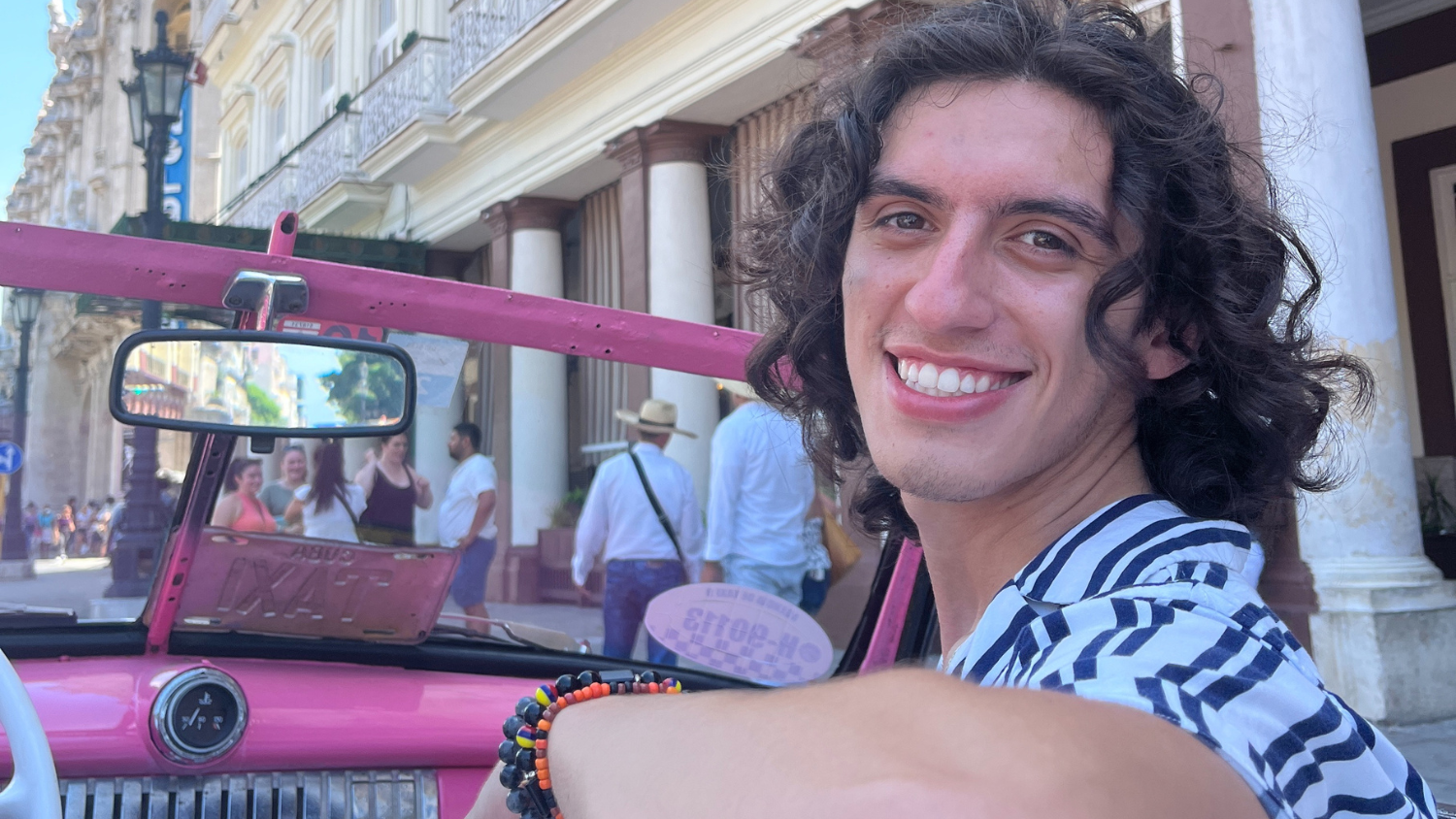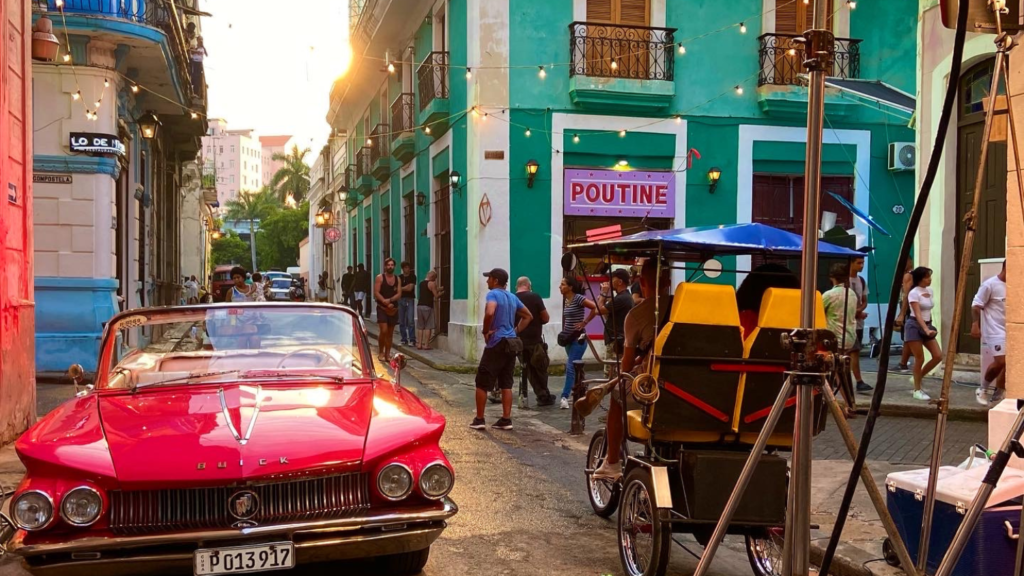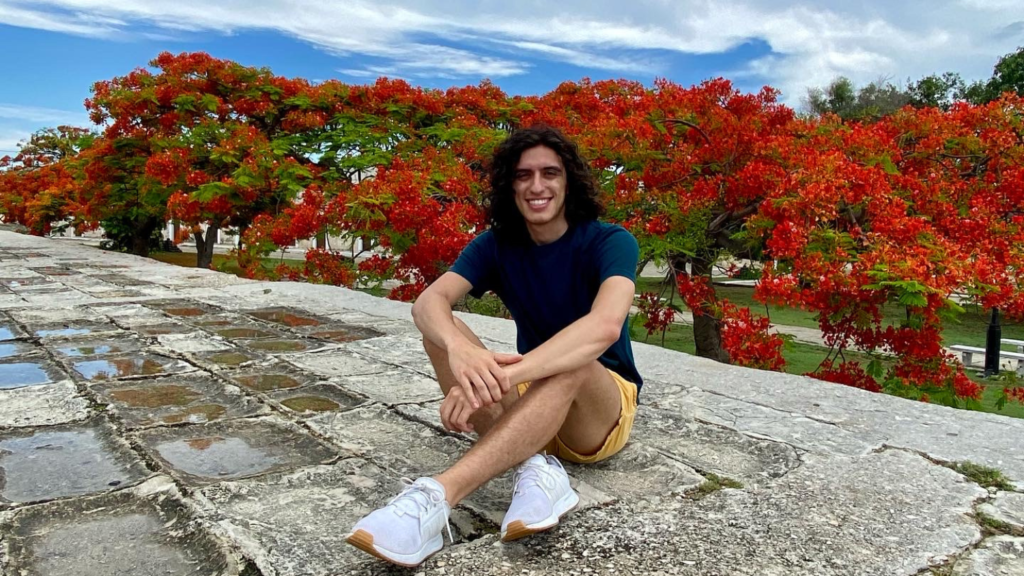Meet Joshua Wasserman (he/him/his)

Program and Location:
Summer, Cuba: History, Environment, and Culture in Havana; Havana, Cuba
Major/Minor:
Majors: International Studies and Spanish Minors: Linguistics, History, Political Science
Why did you choose to study abroad?
I decided to go to Cuba for a couple of different reasons. The Cuba study abroad program is one of the shortest study abroad programs that NC State offers which offers six history credit hours. As an international studies major, it is a requirement to take six credit hours abroad. The short length of this study abroad program (two weeks) has allowed me to pursue other opportunities for the rest of the summer such as my research with Associate Dean Dr. Hawkins and my internship. A final reason why I wanted to was that I had the pleasure of having gone to Cuba on a mission trip the year prior. I loved the country and the people; so I wanted to return in a more academic context to learn more about the country’s politics and history.

What did you learn about yourself?
I learned perspicuity. To not take something at face value and to see clearly and right through it. Whether it is something I have heard from my host family, the taxi driver, or Cuban professors. I developed my analytical skills in determining what is most likely true and what can be supported by evidence. Going to Cuba, there are many different narratives that I carried with me and new narratives and perspectives that I confronted. I did my best in deconstructing narratives that needed to be deconstructed, and with others, I made them multi-dimensional instead of two-dimensional.
What was one of your favorite parts of your program?
A special moment on the trip was walking through Old Havana with a friend and entering a local flea market. On the second floor, there were aisles and aisles of art from local artists. It was amazing to see what Cuban artists valued through their artwork. At the end of the flea market my friend and I found a hidden coffee shop, which we took advantage of.

What advice do you have to future study abroad students?
Go. Just Go. Go somewhere where you know the language, or don’t. Go somewhere where you have been before, or something completely new. Everyone should have the opportunity to go abroad. And most importantly, apply for those scholarships!
Were you surprised by anything during your time abroad?
A cultural surprise I experienced while abroad is that Cubans do not like spicy food. They are similar to Argentines in that sense. While it is something small, I feel as though it is extremely important because it may speak to the larger issue of what is accessible on the island due to the embargo.
How were your classes abroad different than if you would have taken them at NC State? Did you take any field trips or do anything outside of the traditional classroom?
My classes abroad were different from my NC State classes, and I would argue different from any other study abroad class. There is no other country like Cuba in the world. My classes basically continued in and outside the classroom. The line between in-class and after-class blurred. You could see the effects of what you learned in class from Cuban professors. You can apply what you learn by asking local people about what is the conventional wisdom surrounding what occurred vs what actually happened. We participated in field trips to different locations on the island that we discussed in class. We were able to see the historical impact of the policies and revolution. One example would be when we saw the abandoned sugar mill, “central,” in Camilo Cienfuegos, Cuba; a town originally known as Hershey town. These mills were left to be abandoned because of Castro’s policies that were enacted to specifically protect the environment. The sugar industry had a great socio-ecological impact on Cuba and its landscape.
Is there any advice you would give to other students who share your identity?
Don’t hesitate to apply to Latin American countries for study abroad opportunities. I was initially hesitant; worried that my experiences in Mexico would be too similar to ones in Cuba. However, while there were many similarities, there were important differences; differences that a person would not have known without going to Cuba. It made me appreciate the diaspora of Latin America.

In what ways did your identity have an impact on your experience abroad?
My identity as a Latino man positively impacted my experience. I was able to relate to Cubans and their experiences. I was also able to learn greatly from them, and to listen to their experiences.
Where did you find support to navigate any challenges you faced abroad?
While everyone in the cohort was close, I was able to talk to other participants who shared a similar background to me. I didn’t necessarily face any challenges revolving around my identity since Cuba is an extremely diverse location.
Would you do it again?
I would love to go again! Two weeks was not enough! I made new friends, learned new things, and improved my Spanish. It will definitely not be the last time I go to Cuba!